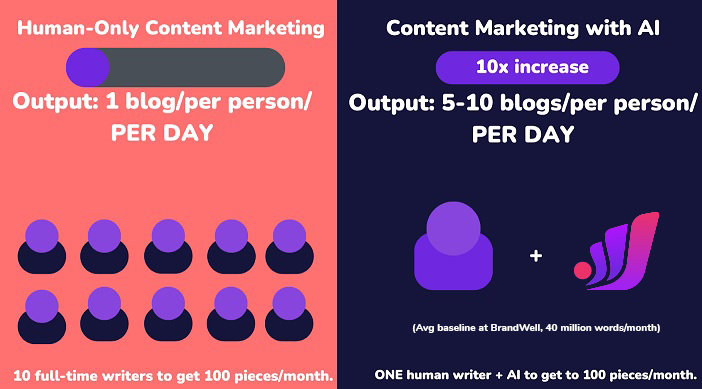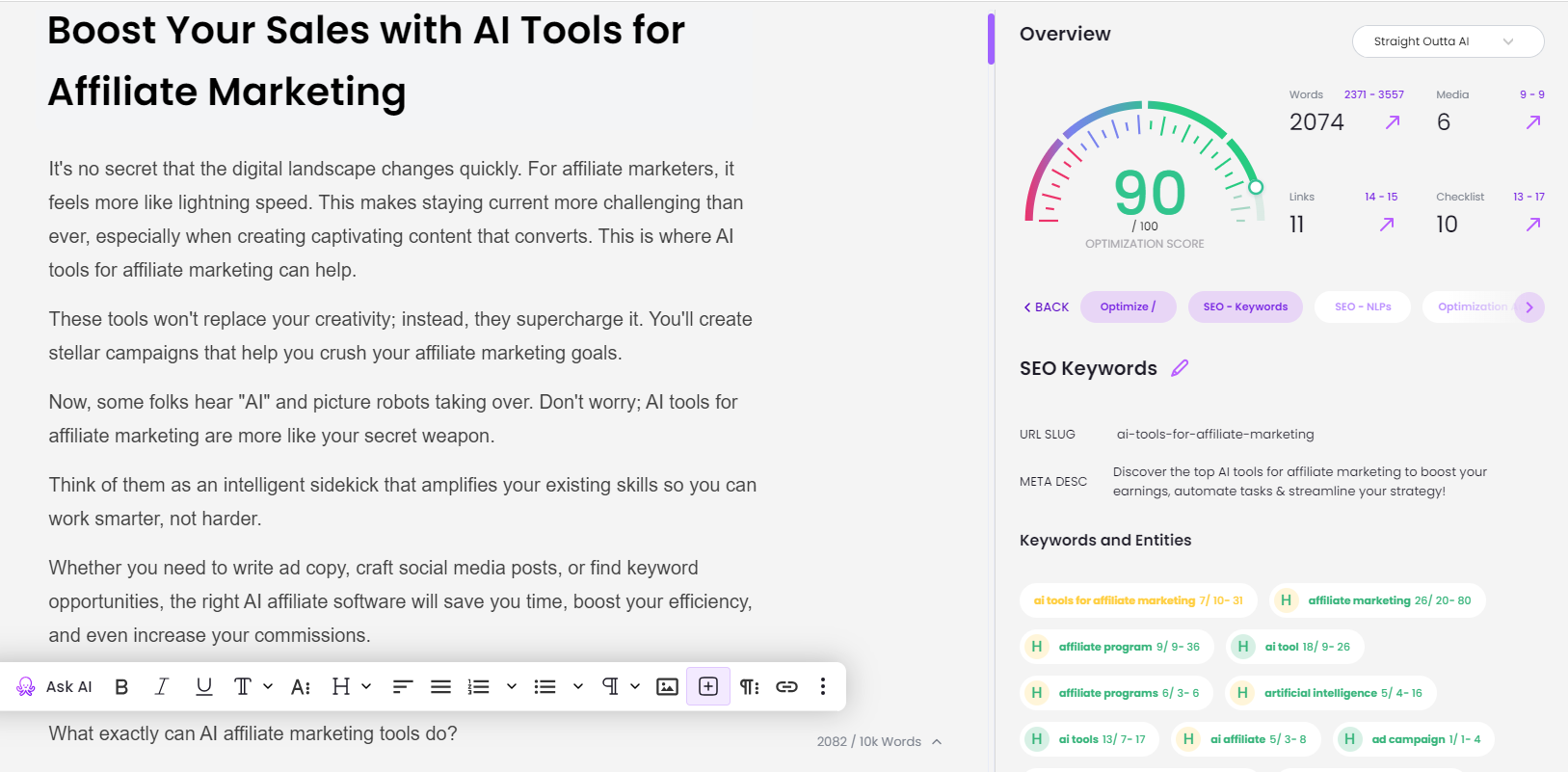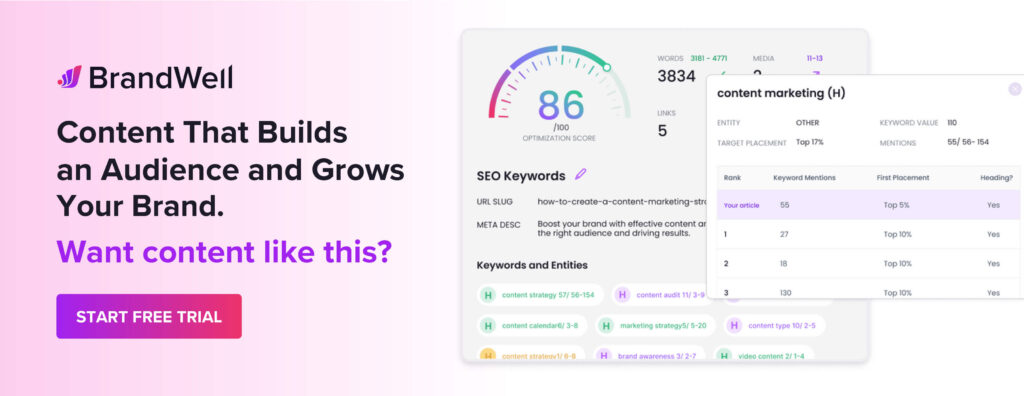Discover top guides, trends, tips and expertise from AIO Writers
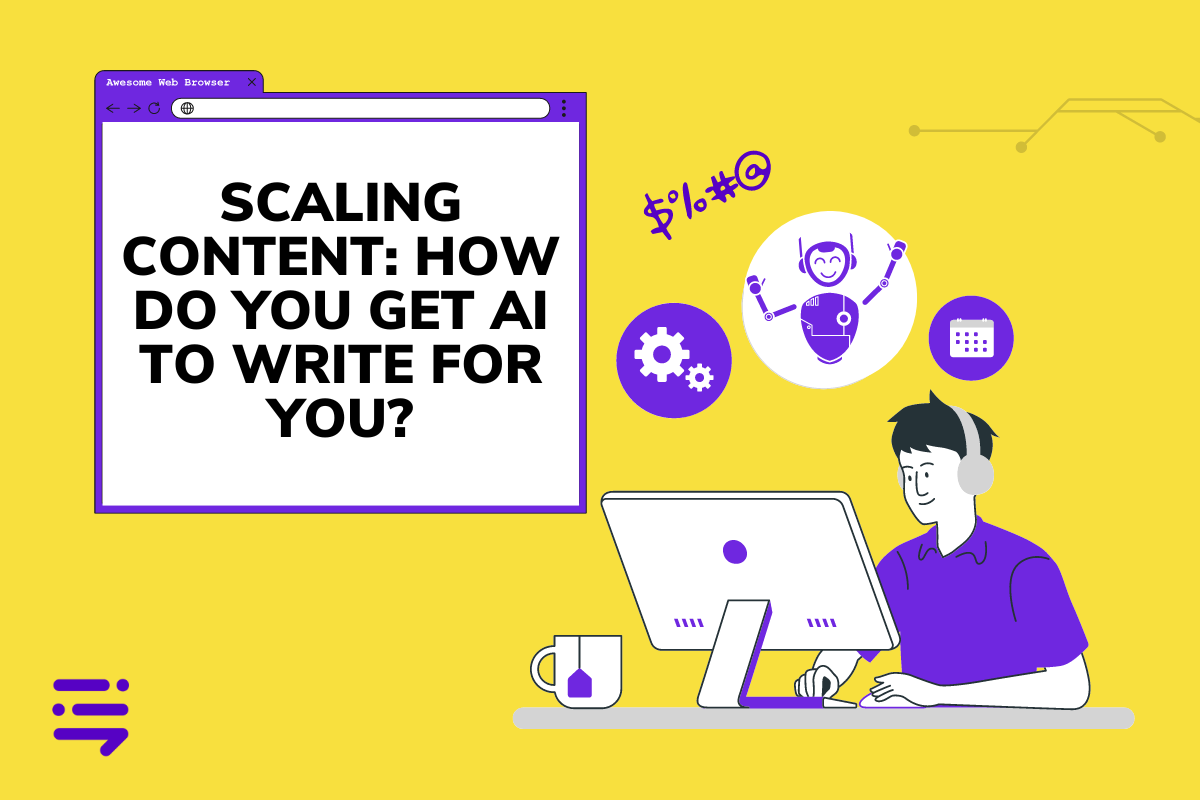
Do you blog every day? Twice a week? Thrice a month?
According to HubSpot research, companies that post 16+ articles per month get 3.5 times more traffic. That’s about one post every other day.
So how do you fit 16 posts into 20 work days without draining your resources?
One way to do it is through automation.
In this blog post, we’ll discuss how to get AI to write for you.
As artificial intelligence technology continues to progress, it has become increasingly capable of creating content that rivals the work of human writers.
But what does Google say about AI content? Will the search giant penalize you for getting a robot to write for you?
Let’s find out.
Table Of Contents:
- What is Natural Language Processing?
- What is Machine Learning?
- How Do You Get AI to Write for You?
- Google and AI Content
- How to Make Money with Writing AI
- Integrating AI into Your Content Strategy
- Is AI Content Writing Worth It?
- FAQs – How Do You Get AI to Write for You?
- Conclusion
What is Natural Language Processing?
NLP is a branch of AI that enables machines to comprehend, interpret, and generate human language. NLP allows AI systems to analyze text data and extract meaningful insights from it. This technology has been applied in various areas such as sentiment analysis, chatbots, voice assistants like Siri or Alexa, and content writing.
To comprehend the intricacies of human language, NLP relies on several core components:
- Tokenization: The process of breaking down text into individual words or tokens for further analysis.
- Parsing: Analyzing the grammatical structure of sentences to determine their meaning.
- Semantic analysis: Understanding the context behind words by considering factors such as synonyms, antonyms, homonyms, etc., which helps in identifying the correct meaning based on context.
- Sentiment analysis: Determining emotions expressed within a piece of text by analyzing word choice and tone.
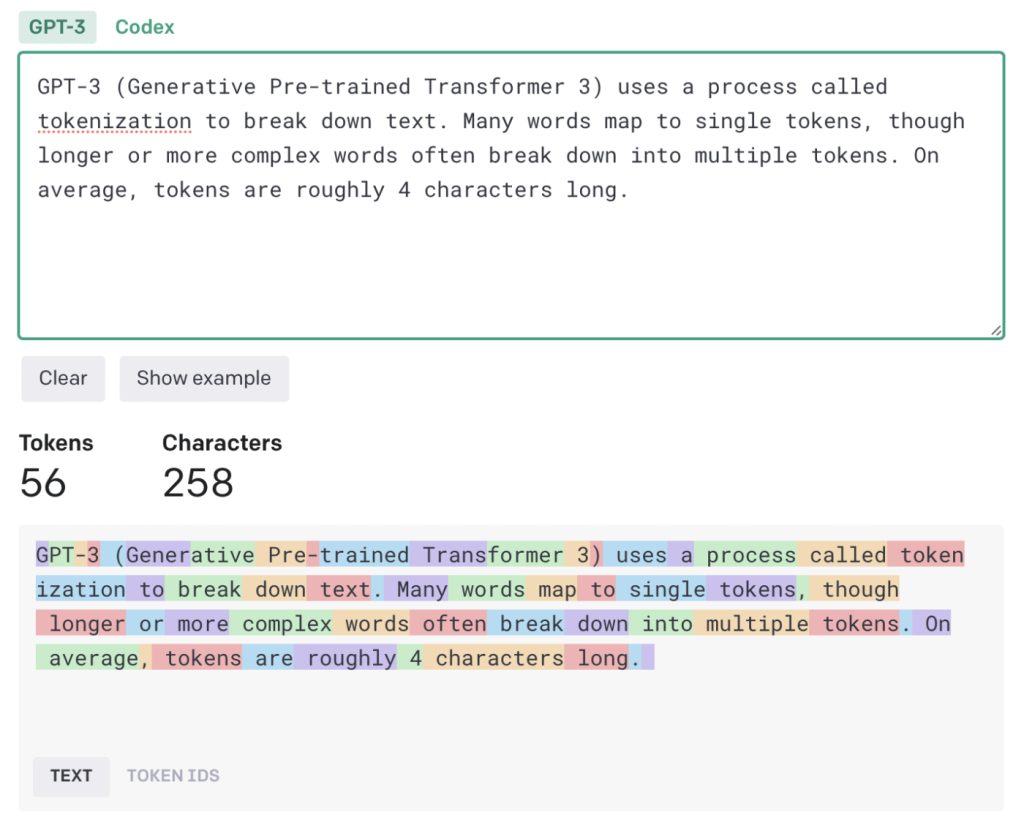
Image source: Zapier
NLP in Content Writing
AI-driven tools are now helping businesses create engaging articles at scale while maintaining quality standards. These bots can automatically generate relevant topics based on user input or industry trends, suggest keywords for SEO, and even proofread content for grammatical errors.
Moreover, NLP-based AI tools can also assist in content personalization, tailoring articles to specific target audiences by analyzing user preferences and online behavior.
What is Machine Learning?
Machine learning is a subset of AI that focuses on developing algorithms and models to enable computers to learn from data without explicit programming. By analyzing vast amounts of data, machine learning can identify patterns and make predictions, ultimately generating high-quality content for various applications.
Deep learning, a more advanced branch of machine learning, uses neural networks with multiple layers to process complex input-output relationships. Deep learning has been demonstrated to be extremely successful in NLP activities such as text production, interpretation, and sentiment evaluation. As a result, deep learning plays an essential role in AI-driven content writing by enabling the creation of coherent and contextually relevant content.
Types of Machine Learning Algorithms
- Recurrent Neural Networks (RNNs): RNNs are designed to handle sequential data like text by maintaining an internal state that can capture information about previous inputs. This makes them ideal for tasks such as predicting the next word in a sentence or generating entire paragraphs based on given prompts.
- Transformers: A relatively new architecture introduced by Google’s research team has revolutionized NLP tasks due to its ability to process long-range dependencies within texts efficiently using self-attention mechanisms.
- GPT-3: The third iteration of OpenAI’s Generative Pre-trained Transformer model, GPT-3 is capable of generating human-like text across various domains and styles.
These algorithms and models have significantly impacted content marketing by automating time-consuming tasks like keyword research, topic generation, and even writing entire articles. By leveraging machine learning technologies in your content strategy, you can produce high-quality material efficiently while maintaining a consistent voice for your brand.
How Do You Get AI to Write for You?
Brand growth solutions like BrandWell can help you create engaging, high-quality pieces of content in bulk.
Here’s how you can get started with using AI for your writing needs:
- Subscribe to BrandWell: When you sign up for BrandWell, you can immediately start writing long-form blog posts in minutes by simply inputting a keyphrase or URL (YouTube, podcast, blog).
- Provide input: You may provide specific instructions to the AI such as keyword context or rearrange the blog outline it generated for you in case it missed something.
- Edit: While most AI-generated texts are already well-written and publish-ready, you want to make sure your content reflects your brand voice before uploading it to your blog or website. Add some humor, emotion, or personality to make AI content your own.
- Refine: When it comes to readability, visuals and white space are important. You don’t want to bore your reader with 3,000 words of plain text. During the final editing stage, go through your initial draft and add some media elements such as photos, videos, or tweets to break up sections.
Google and AI Content
With ML algorithms and NLP improving rapidly, content creators must understand how search engines like Google perceive AI content.
What does Google say about AI content creation?
In its latest guidelines, Google continues to emphasize that it prioritizes high-quality content when ranking pages — particularly content that exhibits E-E-A-T: expertise, experience, authoritativeness, and trustworthiness.
Does Google Punish AI Content?
It doesn’t matter whether your content was written by a human or a machine. If it’s irrelevant, poorly written, and has no value, then you may face negative consequences in terms of SEO performance. Therefore, it’s essential to use AI writing tools responsibly and ensure that the content you publish aligns with Google’s quality guidelines.
Does Google Detect AI Writing?
There’s no evidence to suggest that Google specifically targets websites with AI-generated content. As long as your website provides value to users and follows SEO best practices, you should have nothing to worry about.
That being said, there are a few things you need to keep in mind when using AI writing tools:
- Quality over quantity: While AI can help generate large volumes of content quickly, it’s crucial to focus on quality rather than just producing a hundred posts. Make sure your content provides value to readers and addresses their needs effectively.
- Avoid plagiarism: Just like human writers, AI-powered tools can also produce duplicate or plagiarized content. Make sure you run your articles through a plagiarism checker before publishing them. (Tip: BrandWell has a built-in plagiarism checker so you can ensure your articles are 100% original)
- Create unique titles and meta descriptions: AI can automatically generate titles and meta descriptions for your articles, but you should optimize these elements to improve search engine rankings.
- Edit for readability: Although most advanced language models produce readable output on their own, always remember that machine learning algorithms can make mistakes too. Therefore, editing and proofreading are always necessary.
- User experience matters: User experience (UX) is also significant a factor when search engines evaluate a piece of content. Optimize your site layout, design elements, navigation menus, etc., so visitors have an enjoyable browsing experience while reading your AI-generated content.
Will Google Demote AI-Generated Content?
Google guidelines keep changing all the time so it’s important to stay abreast of the latest updates. As AI content generation continues to evolve, search engines may adapt their algorithms accordingly.
How to Make Money with Writing AI
Content production is now a profitable venture in the digital age. AI and machine learning have made it possible to monetize your writing skills by using AI-powered tools.
Here are some ways to make money with AI writing:
- Freelance content creation: Use AI-driven platforms like BrandWell to generate high-quality articles quickly and efficiently for clients.
- Affiliate marketing: Create engaging blog posts about products or services then include affiliate links in your posts to earn commissions.
- E-books and online courses: Use AI tools to write e-books or develop online courses that people will be willing to pay for.
- Premium content subscription services: Create exclusive content using artificial intelligence, then offer it as part of a paid subscription service on your website or platform.
By leveraging AI for content creation, you can create great content that resonates with your readers and gives you a competitive advantage. With proper planning and execution, making money with AI writing can become a sustainable income source for any digital entrepreneur.
Integrating AI into Your Content Strategy
Before you start churning out 10 blog posts a day, it’s important to establish your business objectives and develop a content plan that will engage your target audience and enhance their overall experience.
Here’s how you can integrate AI into your content creation workflow.
Identify Your Content Needs
The first step in integrating AI into your content strategy is to identify the types of content that would benefit most from automation. This may include blog posts, social media updates, email newsletters, and product descriptions. Once you have determined which areas could use a little help from AI, it’s time to explore available tools.
Select the Right Tools
There are numerous AI-powered writing tools on the market today that cater to different needs and budgets.
- Chatbots like ChatGPT are great for writing short-form content like tweets, meta descriptions, landing pages, and email campaigns.
- For long-form content like informational articles, white papers, and case studies, you need a specialized tool like BrandWell.
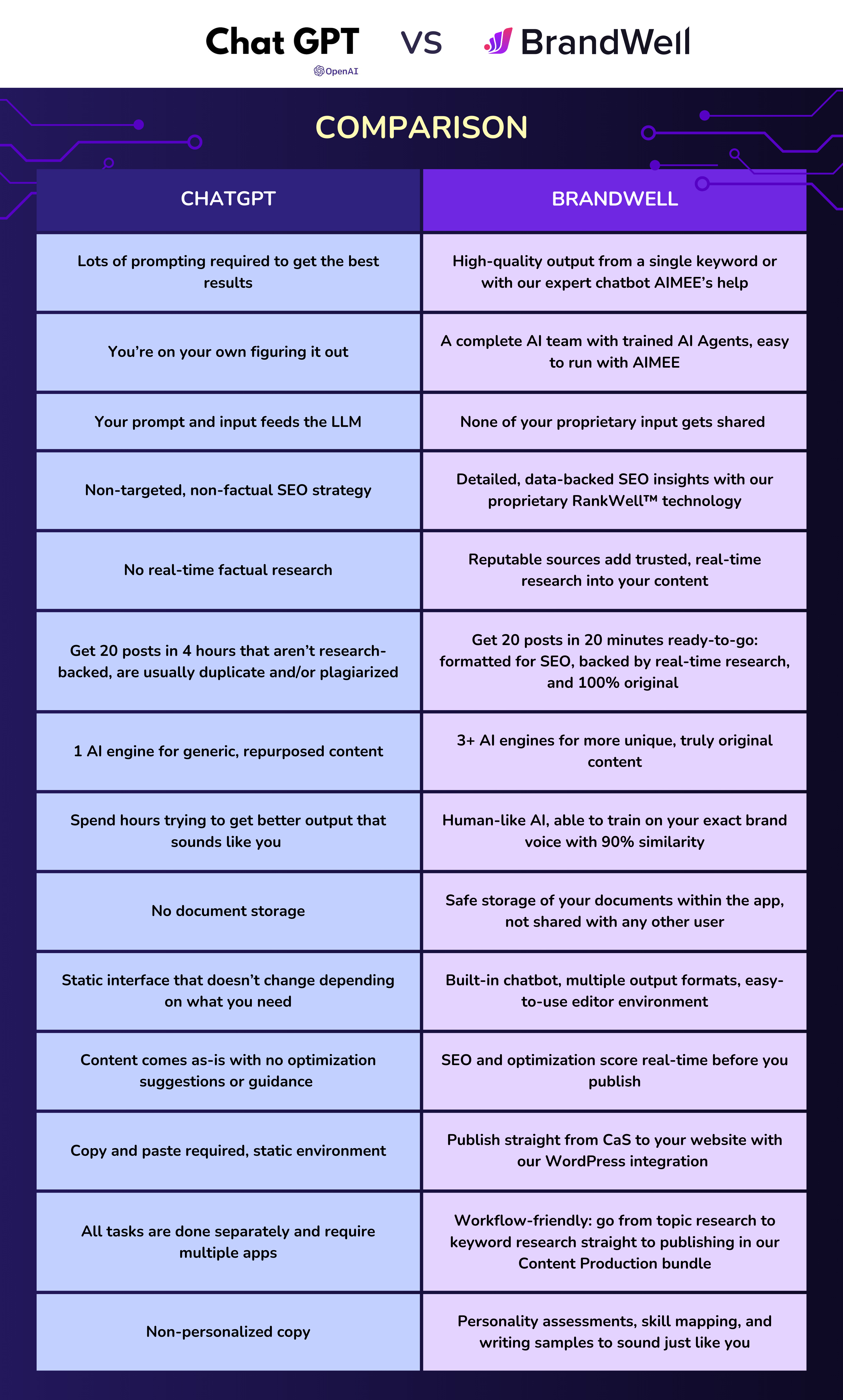
Create Guidelines for Consistency
To maintain consistency across all your written content, develop guidelines outlining tone of voice, style preferences, target audience, etc., so that any automated content aligns with your brand identity.
Trial Run & Iterate
- Analyze: Before fully integrating AI into your content strategy, run a trial to assess the quality of generated content.
- Edit: While AI-generated text can be impressive, it may still require some human editing for context and clarity.
- Optimize: Use analytics tools to track performance metrics like engagement rates or search rankings so you can fine-tune your approach over time.
Incorporating AI into your content strategy is an investment that can yield significant returns in terms of efficiency and scalability. By taking these steps, you can start adopting AI for more successful content marketing.
Is AI Content Writing Worth It?
Before you invest in an AI writing tool, you should weigh the pros and cons of automating your content creation process.
Let’s start with the pros.
Pro: Cost Efficiency
The primary benefit of getting AI to write for you is cost efficiency. Instead of hiring a team of writers or outsourcing your work, you can generate high-quality blog posts through AI at a fraction of the price.
Pro: Speed and Scalability
Scaling up your content production can be challenging when relying solely on human writers. However, with AI-driven solutions, generating large volumes of text becomes significantly faster and easier. These platforms can produce hundreds of articles within hours instead of months while maintaining consistency in tone and style.
Pro: Versatility
Another benefit of AI tools is versatility — they’re capable of creating various types of written material ranging from blog posts to social media updates, product descriptions, and more. Additionally, many AI writing solutions offer multi-language support which broadens your reach across different markets.
Now let’s look at the cons.
Con: Creative Limitations
One major limitation of AI writing tools is their lack of creativity. While they can generate text based on pre-existing data sets and language models, their output can be bland and sound like an academic paper — lacking the emotion and creativity that a skilled human writer can provide.
Con: Inability to Understand Context
Another challenge with AI writers is their inability to understand context fully. While NLP technology has improved significantly in recent years, machines still struggle with understanding the nuances of human communication. As a result, automated content generated by these tools may not always convey the intended message accurately.
FAQs – How Do You Get AI to Write for You?
Can schools detect AI writing?
Yes, but know that AI detection is flawed. Any AI detector tool will return false positives. That said, these tools can still help
Turnitin, a provider of tools for detecting and preventing plagiarism, now has more than 2.1 million educators using its platform to identify AI-written text in student assignments.
We have our own AI content detector at BrandWell that gives you a score based on how robotic your content sounds. It also points out specific areas of the text to edit.
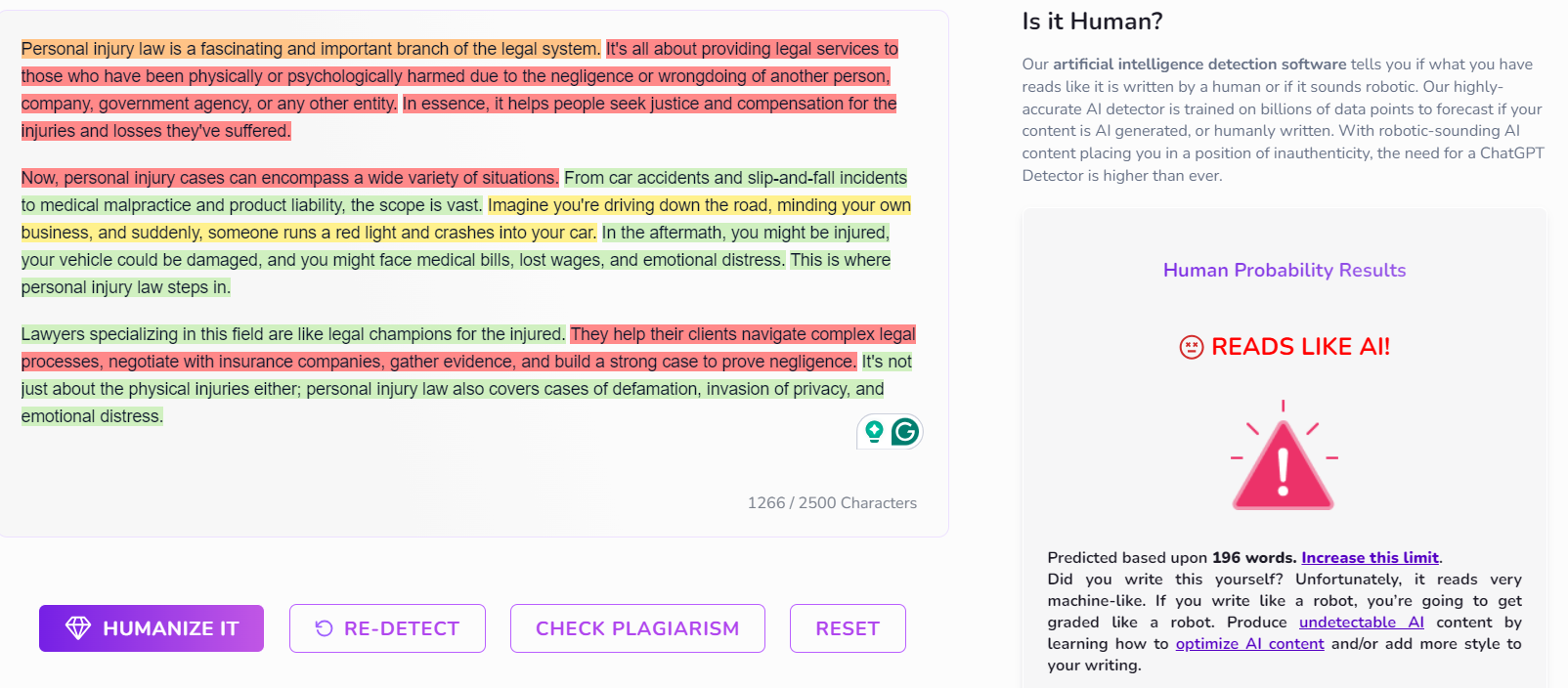
What are the downsides of AI art?
- Lack of human touch: Art created by AI may not possess the same level of personal connection and emotional richness that is present in artwork crafted by human artists.
- Ethical concerns: The use of AI for creating art has raised ethical concerns regarding the potential displacement of human artists.
Is content writing in high demand?
The demand for content writers remains high as the industry and social media rely heavily on all types of content, be it written or visual.
Who gets paid more, writer or illustrator?
The pay difference between artists and writers varies depending on the perspective. If we consider one issue of a comic book, then the artist is paid significantly more than the writer. However, if we look at their compensation based on the number of hours worked, their salaries are relatively equal.
Conclusion
Getting AI to write for you can be a huge help in scaling your content while unburdening you from tedious writing chores. By incorporating NLP and ML tech into your content plan, you can generate high-quality material that is optimized for search engines and resonates with readers.
However, while AI can automate certain writing tasks, it is not a substitute for human creativity and critical thinking. AI should be used as a starting point, not a blog author.
Ultimately, integrating AI into the writing process can help to increase productivity and streamline content creation, but it should be done with caution and care.

UNLOCK YOUR POTENTIAL
Long Headline that highlights Value Proposition of Lead Magnet
Grab a front row seat to our video masterclasses, interviews, case studies, tutorials, and guides.

